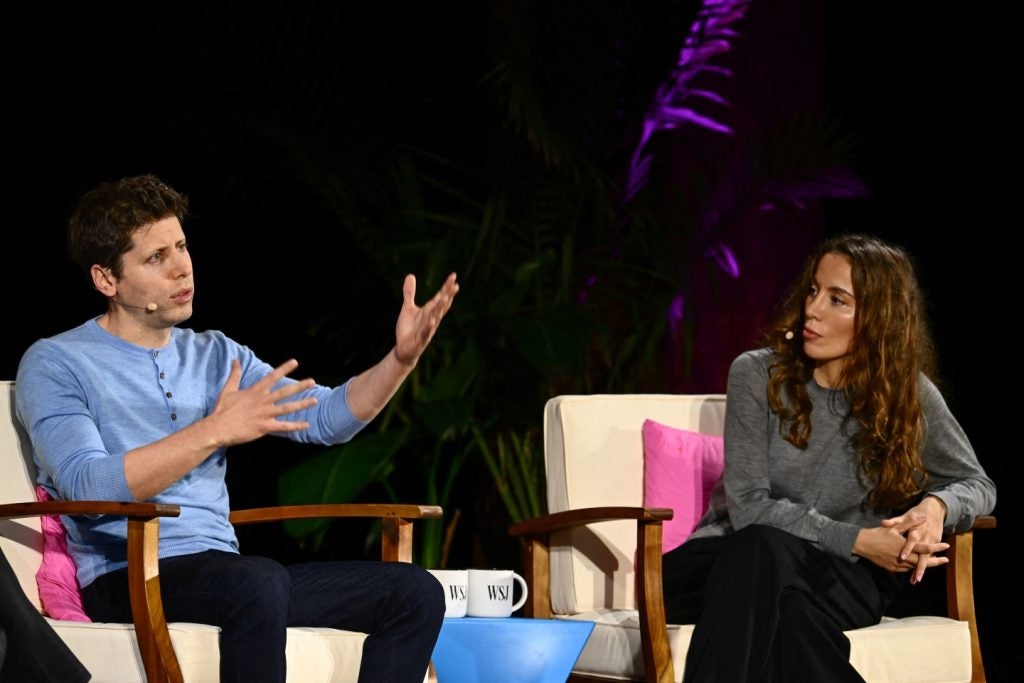A year on since the release of ChatGPT, OpenAI’s CEO Sam Altman has temporarily been replaced by the company’s longtime CTO Mira Murati.
Murati will serve as OpenAI’s interim CEO until ex-Twitch CEO Emmett Shear transitions into the role.
Having joined OpenAI in 2018, Mashable described Murati as one of the major “brains” behind viral large language model ChatGPT. Now its temporary CEO, Verdict asks why more women have not taken centre stage in the AI revolution.
Research has shown that women are more likely to be at risk of losing their jobs to AI automation and only three percent of VC funded AI startups were founded by women, according to an October 2023 study by the Alan Turing Institute.
Managing director at software provider company Talk Think Do, Louise Clayton, tells Verdict that gender disparity in the AI industry has been a historical sticking point for businesses.
“The gender split has certainly changed over the past 18 years, but it still firmly remains male dominated,” Clayton says, explaining that many of the women who are in AI remain in non-technical analysis or management roles.
“The tech sector is made up of over 70% men, and I personally face sexism (conscious or unconscious) on a regular basis,” she says, “I know how to spot it and how to deal with it now, and thankfully the majority of those in the tech sector embrace egalitarian principles.”
Despite making up half of the UK population, a 2022 UCAS survey found that only 35% of all STEM higher education students in UK universities were women. Technical jobs in AI have high pre-requisites for applicants which include a higher education, usually doctorate, degree.
This disparity in education, according to CEO of software company Panintelligence Zandra Moore, is the seed that sows disparity in tech hiring.
“We need more female-founded and women-led businesses to be raising capital and exiting to be role models for the next generation,” Moore says, adding that there were too few visible women in tech and that many people would struggle to name a single female founder in the industry.
Moore’s statement on the lack of female founder role models in not unfounded.
A campaign to promote consumers into buying from women-founded businesses Buy Women Built was established after research found that 81% of 11-18 year olds in the UK were unable to name a single female entrepreneur from any sector.
Gender disparity is not just a corporate governance issue either.
Generative AI is reliant upon vast troves of training data that help it anticipate the next word in its responses. As AI seeps into businesses across every sector, algorithmic bias within the software has never been more critical to control.
Katarina Andersson, VP of capture at AP automation company Medius, stated that a lack of female representation within AI “profoundly impacts” the frameworks, algorithms and AI solutions that are so quickly defining the business workflow of tomorrow.
“Technology companies need to foster inclusive environments, ensure parity in opportunities, and dismantle ingrained biases – only then can they aid women in flourishing in the workplace – like Medius does for me,” she says.
Though temporary, Murati’s interim CEO role and the news coverage it has since garnered may be a gleam of hope for the future of women in AI.
Chief analyst at GlobalData Rena Bhattacharyya states that Murati’s appointment should certainly be seen as a step forward in creating visibility for other women in AI.
“OpenAI is a very prominent company in the tech world today, having been catapulted into the headlines with ChatGPT last year,” she says, “having a woman at its helm will help inspire other tech companies to consider similar moves in the future.”









